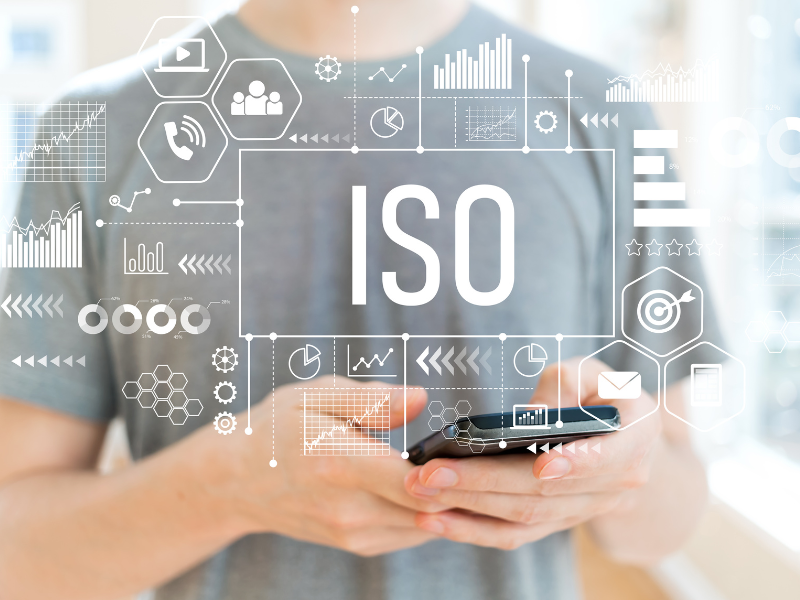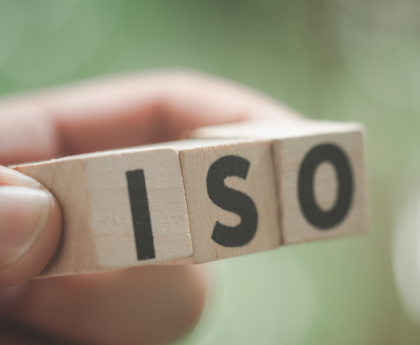What is ISO Certification?
ISO Certification, or the International Organization for Standardization, is a non-governmental organization that develops and publishes international standards for various industries and sectors. ISO certification is a process through which organizations demonstrate their adherence to specific ISO standards, thereby signaling their commitment to quality, efficiency, and consistency in their operations. These standards are designed to ensure that products and services are safe, reliable, and of high quality.
ISO certification is a valuable credential that organizations can achieve by conforming to the guidelines and requirements set out in the relevant ISO standard. It serves as a mark of trust and credibility, instilling confidence in customers, partners, and stakeholders.
Which ISO Certification Do I Need?
The ISO standards cover a wide range of areas, and the choice of certification depends on the nature of your organization’s activities and objectives. Some common ISO certifications include:
ISO 9001: Quality Management System (QMS) – This standard focuses on ensuring that an organization has effective quality management processes in place, leading to improved product or service quality and customer satisfaction.
ISO 14001: Environmental Management System (EMS) – This certification is for organizations seeking to minimize their environmental impact by implementing environmentally responsible practices and policies.
ISO 27001: Information Security Management System (ISMS) – This standard addresses information security risks and helps organizations protect sensitive information from breaches and data theft.
ISO 45001: Occupational Health and Safety Management System (OHSMS) – Organizations use this standard to establish a safe and healthy workplace for employees and reduce workplace accidents.
ISO 22000: Food Safety Management System (FSMS) – Suitable for businesses involved in food production, processing, or distribution, this certification ensures the safety and quality of food products.
ISO 50001: Energy Management System (EnMS) – This certification focuses on improving energy efficiency and reducing energy consumption within an organization.
ISO 13485: Medical Devices Quality Management System (QMS) – Applicable to manufacturers of medical devices, this standard ensures the safety and quality of medical products.
ISO 9001 for Individuals: Some ISO certifications are designed for individuals, such as lead auditor or lead implementer certifications, which demonstrate expertise in implementing and auditing ISO management systems.
How Many Certifications Does ISO Have?
ISO develops and maintains thousands of standards, covering a broad spectrum of industries, sectors, and disciplines. As of my knowledge cutoff date in September 2021, ISO had published over 23,000 international standards. New standards are periodically developed and existing ones are revised to keep up with technological advancements and evolving business practices. Therefore, the number of ISO certifications may continue to grow over time.
How Do I Get an ISO Certificate?
Obtaining an ISO certificate involves several steps, and the process can vary depending on the specific standard you are seeking certification for. Here is a general overview of the ISO certification process:
Initial Assessment: Determine which ISO standard is relevant to your organization’s needs and objectives. Conduct an initial self-assessment to identify gaps in your current processes compared to the standard’s requirements.
Select an ISO Consultant: Many organizations choose to work with ISO consultants or certification bodies to guide them through the certification process. These consultants can provide expertise and guidance on implementing the standard effectively.
Gap Analysis: Perform a detailed gap analysis to identify areas where your organization needs to improve or make changes to align with the ISO standard. This step helps in developing an action plan.
Documentation: Create and document the necessary processes, procedures, and policies required by the ISO standard. This documentation should align with the standard’s requirements and be made available for audit.
Training and Awareness: Train your employees and raise awareness about the ISO standard and the changes it brings to your organization’s processes. Ensure that everyone understands their role in maintaining compliance.
Internal Audit: Conduct internal audits to evaluate your organization’s adherence to the ISO standard. Identify non-conformities and areas for improvement.
Management Review: Review the results of internal audits and assess the effectiveness of your quality management system. Make necessary adjustments based on the findings.
Certification Body Selection: Choose a recognized and accredited certification body to conduct an external audit. The certification body will assess your organization’s compliance with the ISO standard.
External Audit: The certification body’s auditors will conduct an external audit to evaluate your organization’s compliance with the ISO standard. They will review documentation, interview personnel, and observe processes.
Certification Decision: Based on the findings of the external audit, the certification body will make a certification decision. If your organization meets the standard’s requirements, you will be awarded the ISO certificate.
Continuous Improvement: ISO certification is not a one-time achievement. To maintain certification, organizations must continually monitor and improve their processes to ensure ongoing compliance with the standard.
It’s important to note that ISO certification requires a commitment to continuous improvement and compliance with the standard’s requirements. The certification process can be time-consuming and may involve substantial effort and resources, but the benefits, including improved quality, customer trust, and market competitiveness, often outweigh the costs.
ISO Certifications List
In addition to the common ISO certifications mentioned earlier, there are many other ISO standards that cover a wide range of industries and areas of focus. Here are some additional ISO certifications:
- ISO 22001 HACCP (Hazard Analysis and Critical Control Points): Food safety management system for businesses in the food industry.
- ISO 50001: Energy management system for improving energy efficiency and reducing energy consumption.
- ISO 22301: Business Continuity Management System (BCMS) for ensuring business continuity during disruptions.
- ISO 26000: Guidance on social responsibility, helping organizations operate ethically and responsibly.
- ISO 31000: Risk management standards for identifying, assessing, and mitigating risks within an organization.
- ISO 90003: Quality management system for software engineering.
- ISO 20000: IT Service Management System (ITSM) for IT service providers.
- ISO 27002: Code of practice for information security controls.
- ISO 28000: Supply chain security management system standards.
- ISO 10015: Quality management guidelines for training.
- ISO 16949: Quality management system for the automotive industry.
- ISO 13485: Quality management system for medical devices.
- ISO 15489: Information and documentation records management standards.
- ISO 14064: Greenhouse gas accounting and verification standards.
- ISO 45001: Occupational health and safety management system for workplaces.
- ISO 39001: Road traffic safety management system standards.
These are just a few examples, and there are many more ISO standards available for various industries and purposes.
ISO Certification for Individuals
ISO certifications for individuals are designed to recognize and validate the expertise and competencies of professionals in specific fields. These certifications demonstrate an individual’s knowledge and skills in implementing and auditing ISO management systems. Some examples of ISO certifications for individuals include:
- ISO 9001 Lead Auditor: Demonstrates competence in auditing quality management systems based on ISO 9001.
- ISO 27001 Lead Implementer: Validates expertise in implementing and managing information security management systems based on ISO 27001.
- ISO 14001 Lead Auditor: Recognizes proficiency in auditing environmental management systems based on ISO 14001.
- ISO 45001 Lead Auditor: Demonstrates competence in auditing occupational health and safety management systems based on ISO 45001.
- ISO 50001 Lead Auditor
Validates expertise in auditing energy management systems based on ISO 50001.
Individuals seeking these certifications typically undergo training and pass examinations conducted by accredited certification bodies or training providers. These certifications can enhance an individual’s career prospects and demonstrate their commitment to professional development.
ISO Standards PDF
ISO standards are typically available for purchase in PDF format from the official ISO website (www.iso.org) or through authorized distributors and standards organizations. When you acquire an ISO standard in PDF format, you gain access to the full text of the standard, which includes its requirements, guidelines, and specifications.
Here are the general steps to obtain ISO standards in PDF format:
1. Visit the ISO website (www.iso.org) or a trusted authorized distributor of ISO standards.
2. Search for the specific ISO standard you require by its number or title.
3. Add the selected standard to your cart or follow the website’s instructions for purchasing.
4. Complete the checkout process, providing necessary payment and contact information.
5. Once the payment is processed, you will typically receive a link to download the PDF version of the standard.
Please note that ISO standards are copyrighted, and purchasing a copy allows you to access and use the standard for your organization’s purposes. Sharing or distributing ISO standards without proper authorization may infringe on copyright laws.
The cost of obtaining ISO 9001 certification can vary significantly depending on various factors, including the size and complexity of your organization, the chosen certification body, the extent of existing quality management system (QMS) implementation, and the level of assistance required from ISO consultants. Here are some cost-related considerations:
Consulting Fees: If your organization requires assistance with gap analysis, documentation development, and process improvement, you may incur consulting fees. The cost of consultants can vary based on their expertise and the scope of work.
Certification Body Fees: Certification bodies charge fees for conducting external audits and issuing ISO 9001 certificates. The fees may depend on the number of employees, locations, and the complexity of your organization.
Internal Resource Costs: Your organization may need to allocate internal resources to work on ISO 9001 compliance and documentation. This includes employee time spent on training, audits, and process improvements.
Training Costs: Training your employees on ISO 9001 requirements may involve additional costs. Training can be conducted in-house or by external providers.
Document Development Costs: Creating and maintaining the necessary documentation, including quality manuals and procedures, may require resources and software tools.
Audit Costs: Internal audits to assess compliance with ISO 9001 may involve some costs, including auditor time and resources for corrective actions.
Certification Renewal Costs: ISO 9001 certification is typically valid for a specific period, often three years. Organizations must undergo surveillance audits during this period to maintain certification. These audits come with associated costs.
It’s essential to obtain detailed quotes from certification bodies and consultants, as well as to budget for ongoing certification maintenance. The cost of ISO 9001 certification is an investment in improving your organization’s quality management processes, customer satisfaction, and overall business performance.
ISO Full Form
ISO stands for the “International Organization for Standardization.” It is not an acronym derived from English words but is derived from the Greek word “isos,” which means “equal.” The name emphasizes the organization’s mission to develop international standards that ensure products, services, and systems are consistent, reliable, and equal in quality across borders and industries.
In Conclusion
ISO certification is a powerful tool for organizations and individuals seeking to demonstrate their commitment to quality, safety, environmental responsibility, and other important aspects of business and industry. The choice of ISO certification depends on your organization’s objectives and industry. The certification process involves careful planning, implementation, and continuous improvement to align with ISO standards. While it can be a significant undertaking, ISO certification offers numerous benefits, including improved efficiency, customer trust, and access to new markets. Obtaining ISO certification is a valuable achievement that can enhance your organization’s reputation and competitiveness in today’s global business environment.



